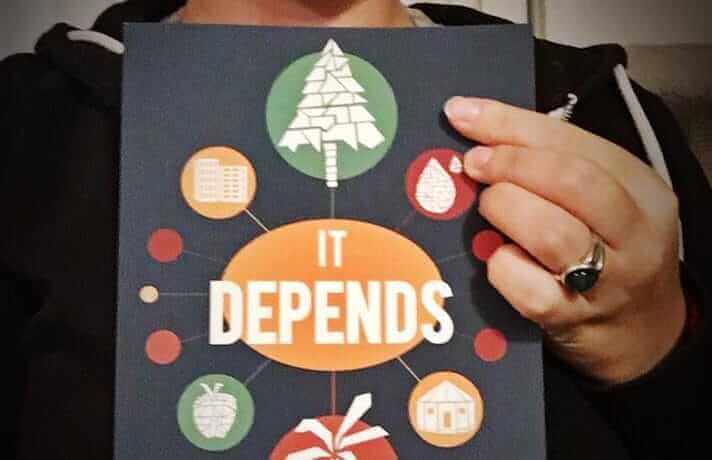It may seem like a daunting task to defeat, but after being immersed in the culture, it will be a lot easier than you think. Part of learning the language means letting go of the fear of failure, studying extensively, and using it whenever possible. Below I’m going to tell you some of my favorite “how to learn Chinese” tools that I used to advance my proficiency in Peace Corps. But first, I’ll tell you about my experience from knowing absolutely no Chinese, to finish one sub-level below advanced.
During the first two months of training in China, you will join your other fellow Peace Corps Volunteers in learning the language.
We were placed in groups of four, and studying the basic Pinyin, or more familiarly, pronunciation. At this point, we did not learn how to write or read characters. We essentially learned to just speak.
Learning Mandarin Chinese in Peace Corps
After your two months of Oral Chinese learning in Pre-Service Training (PST), the language professors will test you on your speaking skills. The required and recommended Oral Chinese level is Novice High. This is the basic foundation of the language or what we would call, “Survival Mandarin Chinese.”
I studied endlessly and was placed with a host family with only one member who could speak Chinese. I felt a lot of pressure from my family to learn and learn quickly. But it was not realistic. For me, learning Mandarin was very difficult and I barely made the Novice High requirement.
By the time I reached my permanent site in Chongqing City, I was already feeling overwhelmed, but I was also overjoyed to have a new place to live and students who would be capable of speaking English (or so I was told). I was the first volunteer and foreigner to serve at my school, what I didn’t know is that my kids didn’t really speak English all that well, and I didn’t find out until my first day of teaching English. My students couldn’t understand a word I said.
Don’t let this scare you, this story has a happy ending.
How Long Does it Take to Learn Mandarin Chinese?
My lack of ability to speak to my students and understand my students drove me to study endlessly and use the “how to learn Chinese” tools in front of me and around me so I could advance. The same inability to communicate with them also drove me to a gym where I would relieve my stress.
After joining the gym, I quickly made friends who were more than happy to converse with a foreigner. They were patient, understanding, and they taught me a lot about the language. They spent time with me and let me speak the language freely, and the best part about it? If I wanted to make friends and talk to people, I had no choice but to learn.
I didn’t start really differentiating between words until about 6 months after living in China. It was at that point, that I had heard the patterns enough that I could start to ask questions and plug in words and phrases. Just a few months after that, I had dedicated two hours of my time each day to sit in a Starbucks and studying Chinese using the tools that worked best for me.
By the time I had finished in China, I scored at an Intermediate-High Level, which was not far from my goal of being fluent. I had learned so much Chinese in a short period, that I could teach my classes in both English and Chinese, I could travel confidently alone, and I could have educated conversations with my host family. I felt so good about who I was and my drive to do better. I also learned an incredible amount about the culture just by learning the language. It was a win-win all around for everything.
Now that you have learned my story, I will tell you about how I learned Mandarin Chinese and the tools I used to rise to the top when all the odds were against me.
My first and favorite tool was WeChat.
Sure, WeChat is a messaging app, but it was also useful for practicing speaking, listening, reading, and writing. That’s everything you need to learn a language! I learned to type the characters by typing the Pinyin I already knew.
I learned how to read soon after thanks to developing that skill, and as I learned the characters, I was able to read more and repeat the sounds and phrases of many words. This in turn contributed to my ability to speak, send voice messages to my friends and even understand voice messages sent to me! I was obsessed with WeChat and messaging and it totally did wonders for me. The added bonus is the translating feature (which isn’t always the most accurate, but it helps).
The next app I used was Pleco.
Pleco is a Chinese-English dictionary full of useful words you can find when you can’t find the words to say anything. I like this app because it allows you to search essentially any word you need. It tells you the many meanings of the word, and there are many, and it also gives you the pronunciation and pinyin of the word out loud. You can also plug in short stories or pages from a book and interpret the page word for word to learn more effectively!
Another favorite app of mine is the Youdao app. Don’t waste time using Google Translate in China, it is more English to Chinese based and you want more Chinese to English because that is what you will be working with for the next two years. Think of Youdao like the brain of a Chinese person trying to learn English and think of Google translate like the brain of an American trying to learn Chinese. If you choose a teacher with one of these two brains, who would you choose? Youdao will translate common Chinese phrases more easily and efficiently than Google translate because it thinks like a Chinese native.
My next favorite tool is Chinese textbook and workbook by Boya Chinese.
The reason I love Boya Chinese so much is because it includes tools for writing, reading, listening, and overall comprehension of the language. It starts you off slow and helps you work your way up to a higher level. The book is a series and comes in three levels: Beginner, Intermediate, and Advanced. It gives you the vocabulary to learn and activities to help you retain knowledge.
Anki App is another very useful app you can download on your phone.
It is an app that allows you to store all of the vocabularies you learned when working with Boya. You can have it on your phone 24/7, meaning when you are traveling long distances or commuting to class, you can spend your time studying words so you can sound like a Chinese wizard.
My last and most favorite tool are my friends.
I had so many friends to talk to and friends who loved laughing at me when I made mistakes speaking. They also loved seeing my progress and letting me know how much better I was doing. Your friends are very patient and giving so use them for practice and let them know how grateful they are for being patient and understanding.
So, there you have it! Some of my favorite ways on how to learn Chinese and how they have helped me be proficient in one of the HARDEST languages in the world.
For more methods on learning Mandarin Chinese, contact me!





No Comments